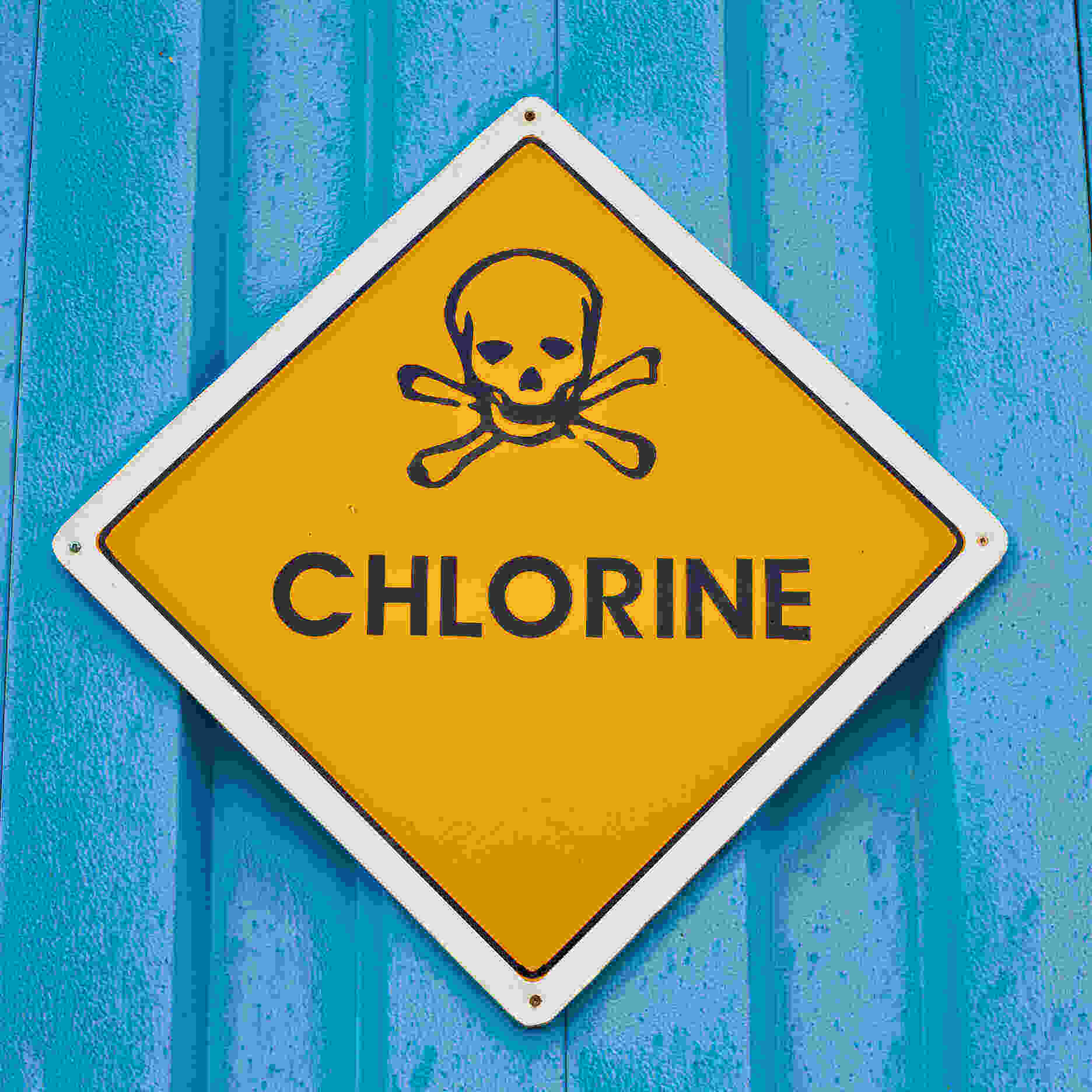You should check the chlorine level in your salt water pool at least weekly to ensure it’s within the correct 1 ppm – 3 ppm range. You can use a disposable test strip or a digital chlorine reader. Catching a chlorine problem early helps you quickly correct it before algae sets in.
The hotter the weather and the more sun you get combined with pool usage increases the chlorine demands of your pool.
Some people are surprised to learn that a salt water pool even has chlorine but it does! It’s just that you have a salt chlorination system that converts salt into chlorine which is the sanitizer that keeps the pool water clean.
How to check the chlorine level in your pool
The quickest ways to check your salt water pool’s chlorine level is by using test strips that specifically test for free chlorine and/or a digital sensor that measures chlorine. Many digital products are on the market that not only measure free and total chlorine but pH, salt, alkanity, calcium and more.
Click here to read more about the differences between free and total chlorine!
Chlorine in your salt water pool should be kept between 1 part per million (ppm) and 3 ppm unless your salt chlorinator system says otherwise.
You might be surprised to find out that your salt chlorinator in all likelihood doesn’t test for chlorine. That’s because there is a difference between free chlorine, combined chlorine and total chlorine. Combined chlorine refers to that has combined (attached) itself to contaminants and is thus spent or used up.
Free chlorine + combined chlorine = total chlorine.
While a pool owner is concerned with all three, the one you want to measure is free chlorine. This is the chlorine that is available in the pool at any given time and is thus free (available) to sanitize the water.
A chlorinator can’t tell the difference between one or other two so you need to manually measure chlorine instead.
The good news? Testing chlorine in a salt water pool is really only something you need to do perhaps 1-2 times per week and with test strips and/or a digital reader, it’s very quick.
What destroys chlorine in your salt water pool?
Chlorine gets used up – in a manner of speaking- by various things. That’s why chlorine constantly needs to be replaced. Once free chlorine has attached itself to debris in the water, it’s becomes combined chlorine (it’s spent) and needs to be replenished.
Chlorine needs to be replaced due to a number of reasons including:
- Getting used up be debris and contaminants in the pool water.
- Being destroyed by the harmful rays of the sun.
- Being lost through water loss i.e. pumping water out to lower the level, back washing a filter, leaks, etc.
Chlorine can also be diluted when water is introduced into the pool whether from rainfall or a hose to refill it.
Of course, the real culprit that kills chlorine is pool usage. Humans (and animals if they jump in) bring various contaminants (sweat, urine) into the water along with chemicals (deodorants, body lotions) that uses up free chlorine quickly.
And with the hot direct sun beating down on the water, it helps to quickly kill chlorine too which is why using stabilizer is important for all salt water pool owners.
Summary
In my experience, salt chlorinators do a pretty good job of keeping chlorine levels – along with other aspects of water chemistry – in check so that chlorine remains within the desired 1 ppm – 3ppm range.
Unless an extraordinary event occurs, chlorine tends to remain within range. Such events include a problem with the salt cell or chlorinator itself, heavy rainfall, or perhaps the chlorinator setting being set too low (low chlorine) or too high (high chlorine).
Want to learn more about why chlorinators don’t measure chlorine? Click here to read my article called Does A Salt Water Pool Chlorinator Monitor Chlorine?

